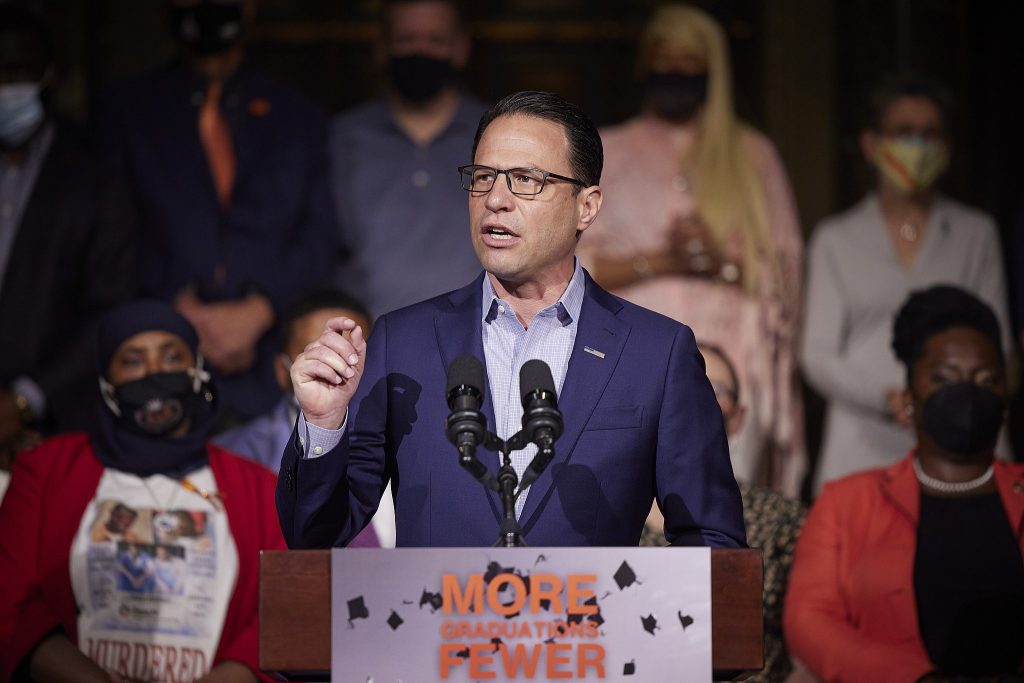(The Center Square) – The state’s piecemeal budget negotiations fractured again this week after lawmakers split a key measure in half.
When the Senate gaveled out of a rare one-day voting session Wednesday, the chamber left behind two fiscal codes for the House to sort out – an unorthodox strategy that’s brought the process no closer to conclusion, legislative sources say.
One bill directs spending on community colleges, libraries, hospitals, nursing homes, emergency services and stream remediation. The second devotes funding to a school voucher program and education tax credits – two controversial issues that have stalled progress on the budget for two months.
A legislative staffer said the strategy decouples the disputed policies from more benign needs. Both, however, need majority support in the lower chamber, where session doesn’t resume until Sept. 26.
“The Senate has done their best to give Gov. [Josh] Shapiro and his counterparts in the House the necessary time to work through their party challenges, but the time has come that we must move beyond the broken deals and words and complete our work to ensure the fiscal solvency of our state,” said Senate President Pro Tempore Kim Ward, R-Greensburg.
Legislative sources told The Center Square, however, Democrats believe passing the bills did nothing to push the budget closer toward completion. Instead, it’s deja vu – a reference to the Senate’s decision to pass a budget in June that the House reportedly never agreed to support.
Chief among those unimpressed with the development is Shapiro. In a statement to The Center Square, spokesman Will Simons said the governor told leaders in both chambers to “engage in meaningful conversation, find common ground” and deliver him the necessary accompanying legislation to settle the $45.5 billion spending plan.
“It is clear with today’s votes in the Senate that those conversations have not yet happened, and legislative leaders have more work to do to stop talking past each other and instead find common ground on the unfinished business before them,” Simons said.
Typically, the code bills – which direct funding and policy for education, human services, administrative functions and election law – follow the budget to the governor’s desk. Without them, the state can’t cut checks to the agencies and programs promised in the spending plan.
Yet, that’s where the process stands. At the heart of the stall remains an ideological disagreement over a $100 million school voucher program that Shapiro struck from the budget after House Democrats refused to support it.
Senate Republicans said the administration helped shape the proposal in exchange for a budget flush with Shapiro’s priorities, including the largest single-year increase in public education. When the deal fell through, so did any urgency to finish the code bills.
An even split in the House further complicates progress. Democrats expect to retain a one-seat majority after a special election Sept. 19 – less than a week before the chamber will return to session.
Until then, some legislative sources believe enough support exists in the House for both code bills. As such, the school voucher program – which Democrats say is an unconstitutional diversion of taxpayer money to private schools – could have a path to Shapiro’s desk after all.
The school choice provisions aren’t the only issues holding back Democratic support. During floor debate Wednesday, senators said both code bills were incomplete and left out funding for important programs that support child care centers, student teachers and indigent defense, among others.
As of now, House Democratic leadership sees no reason to return and approve either bill. That could change “if an agreement is reached on adequately funding critical programs and services currently left out of the Senate Republican fiscal code bills.”
“A fiscal code is not an opportunity to renegotiate the budget,” said Beth Rementer, spokeswoman for House Majority Leader Matt Bradford, D-Norristown. “Since House Democrats passed the Senate’s budget in July, we have repeatedly tried to work to arrive at an agreement. Unfortunately, the Senate Republicans’ actions today do not advance the conversation toward finalizing the state’s budget in its entirety.”
Originally published by The Center Square. Republished with permission.
For more great content from School Reform News.
For more from The Heartland Institute.
